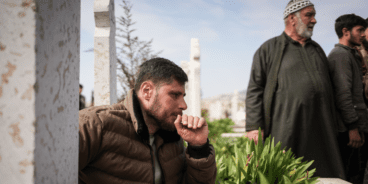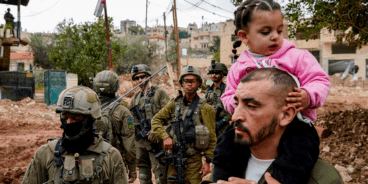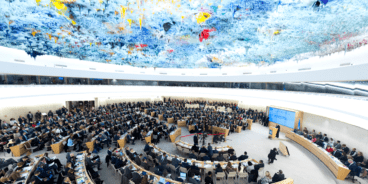Atrocity Alert No. 19: Iraq, Syria and Burma/Myanmar
Atrocity Alert is a weekly publication by the Global Centre for the Responsibility to Protect highlighting and updating situations where populations are at risk of, or are enduring, mass atrocity crimes.
Iraq
On 18 August the UN Office of the High Commissioner for Human Rights (OHCHR) and the UN Assistance Mission for Iraq (UNAMI) published a new report: “A call for accountability and protection: Yazidi survivors of atrocities committed by ISIL.” The report concluded that the atrocities perpetrated by the so-called Islamic State “have been committed in a systematic and widespread manner, targeting and seeking to destroy the Yazidi group, in whole or in part.” OHCHR and UNAMI provided practical recommendations to the government of Iraq and the international community regarding accountability options, including calling on Iraq to accede to the Rome Statute of the International Criminal Court.
Syria
Populations in Aleppo, Syria, continue to endure indiscriminate aerial bombardments despite repeated calls by UN officials for all parties to agree to 48-hour humanitarian pauses to ensure safe, unimpeded access to all parts of Aleppo. During a 22 August UN Security Council meeting on the situation, several Council members expressed alarm at reports of the Syrian government and Russia using incendiary weapons in civilian areas while UN Under-Secretary-General for Humanitarian Affairs and Emergency Relief Coordinator Stephen O’Brien condemned the use of “double tap” attacks that put humanitarian workers at grave threat while attempting to rescue civilians. Referring to Aleppo as an “apex of horror,” Under-Secretary-General O’Brien asserted that the UN is prepared to send 50 trucks of assistance from western Aleppo into eastern Aleppo, as well as 20 additional trucks through cross-border operations, if they receive the necessary security assurances of a comprehensive pause in hostilities.
Burma/Myanmar
On 23 August the office of State Counselor Aung San Suu Kyi issued a press release announcing the establishment of an Advisory Commission on Rakhine State, chaired by former UN Secretary-General Kofi Annan. The nine-member Advisory Commission will initiate a dialogue with national and international stakeholders, including political and community leaders in Rakhine, to find “lasting solutions to the complex and delicate issues in the Rakhine State.” The new National League for Democracy government in Burma/Myanmar has faced increasing pressure to address discriminatory state policies and systematic persecution of the Rohinyga minority, more than 120,000 of whom remain segregated in internal displacement camps in Rakhine State. The UN High Commissioner for Human Rights has reported on widespread and systematic abuses against the Rohingya population that amount to crimes against humanity. The newly-formed Advisory Commission is expected to focus its investigation and recommendations on “humanitarian and development issues, access to basic services, the assurance of basic rights and the security of the people of Rakhine.”
Read Next

Atrocity Alert No. 430: Syria, Central African Republic and the Philippines

Atrocity Alert No. 428: Israel and the Occupied Palestinian Territory, Myanmar (Burma) and Ukraine
